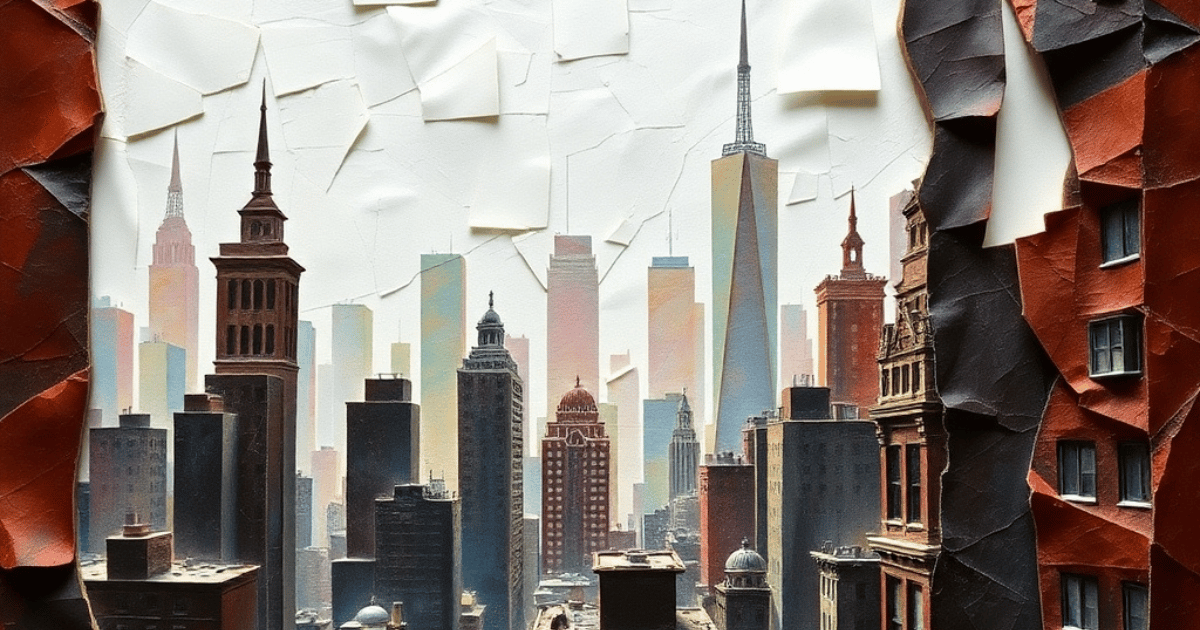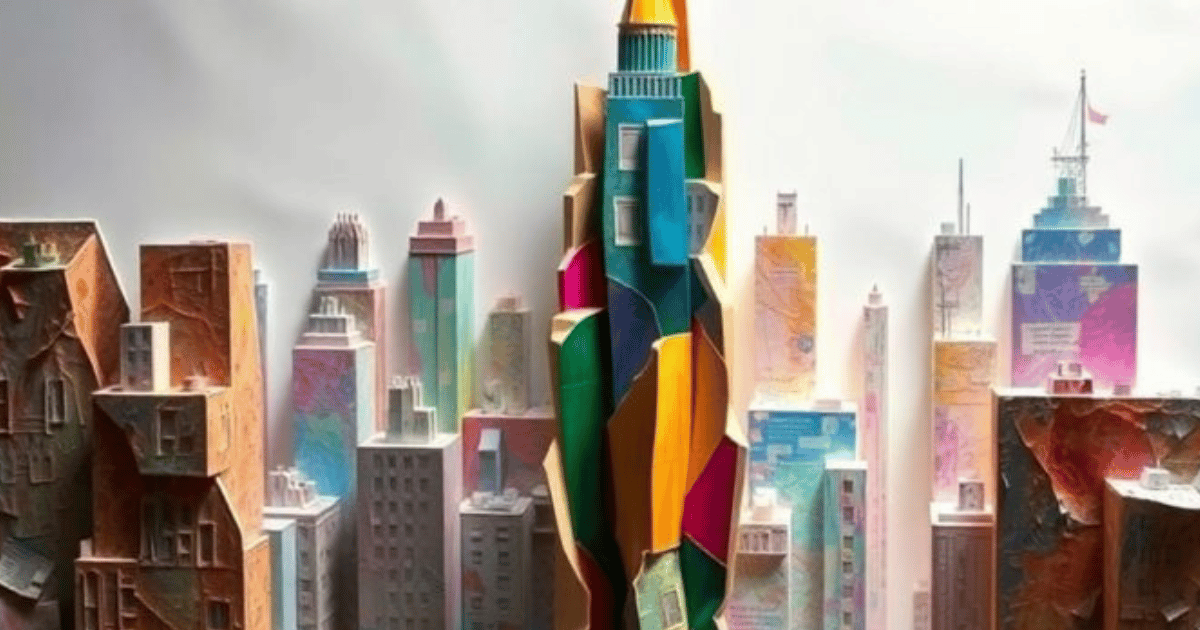Ever feel like America is trapped in a doom loop?
Institutionalized inequality. Political gridlock. Anger bubbling off social media. With the 1% controlling vast fortunes, many rightly feel left behind.
A weary public are convinced their children will inherit a darker future. Polls show that roughly three-quarters of Americans believe today’s children will grow up worse off financially than their parents.
The question too few are asking: Have we lost our ability to imagine a better future? Could the seeds of a new utopian thinking still take root?

Echoes of 1888: Bellamy’s Gilded Age
It’s not the first time society’s capacity for hope was imperiled. In the late 1880s, America was likewise marked by extreme wealth disparities, violent labor strikes, and widespread anxiety. The so-called Gilded Age saw “robber barons” amassing colossal fortunes while workers labored in squalor. Many believed society was coming apart at the seams.
Amid this turmoil, an unassuming Massachusetts journalist named Edward Bellamy published the novel Looking Backward: 2000–1887. He introduced readers to Julian West, a man from 1887 who awakens in the year 2000 to find a radically transformed Boston, free of economic inequality and brutal competition.
In his imagined future, technology serves collective well-being rather than private profit, and every citizen participates in a cooperative “industrial army” for the good of all.
“A hideous, ghastly mistake, a colossal world-darkening blunder.”
The novel became a sensation, selling over 200,000 copies in its first year—extraordinary for that era. Almost 150 “Nationalist Clubs” formed across the country to discuss Bellamy’s ideas and advocate for concrete reforms. Labor leader Eugene V. Debs later credited Looking Backward with shifting his thinking on socialism.
A single imaginative story helped spark a national movement, showing that visionary thinking can pierce through gloom and catalyze widespread action.
Technology and Moral Economy
Bellamy’s foresight was remarkable. He described a society using “credit cards” for purchases (an early version of the concept but not one based on personal debt), on-demand music streaming into homes (predating Spotify), and shorter working hours for all. Yet he insisted that technology alone could not ensure justice; the deeper question was always who benefits from new inventions.
In Looking Backward, the entire nation evolves into what Bellamy calls “one great business corporation,” but everyone shares equally in its profits.
“If we could have devised an arrangement for providing everybody with music in their homes, perfect in quality, unlimited in quantity… we should have considered the limit of human felicity already attained.”
At the heart of Bellamy’s utopia is cooperation over competition. Instead of allowing the most profitable or powerful to dominate, he imagined a system prioritizing human dignity and shared well-being. Critics called it unrealistic or authoritarian, but Bellamy believed that without a bold moral vision, society would continue to produce both obscene abundance for a few and acute scarcity for many.

A Loop of Modern Despair
Fast forward to 2025, where cynicism prevails. Wealth concentration has left 67.3% of household assets in the hands of the richest tenth, while the bottom half accounts for just 2.4%. Social media algorithms amplify catastrophic scenarios. Climate anxiety surges. Wages stagnate, housing costs soar, and mental health crises grow, fueling an “every person for themselves” mindset.
Meanwhile, Americans devour dystopian media—apocalyptic fiction, streaming series about societal collapse—while labeling big ideas like a Green New Deal or guaranteed income as “utopian” in a pejorative sense. There is a “doom spiral” atmosphere that persuades many to believe only worse is coming.
“Society [is] like a prodigious coach which the masses of humanity were harnessed to and dragged toilsomely along… The top was covered with passengers who never got down, even at the steepest ascents.”
It’s a searing image in an age where the wealthiest can observe societal decay from behind gated communities while the rest strain to pull the weight.

Green Shoots of Utopian Thinking
Beneath the gloom, there are hopeful undercurrents—much like the springs of reform that bubbled up in Bellamy’s day:
Solarpunk: A growing cultural and literary movement that rejects dystopia fatigue by imagining sustainable, community-centered futures.
Guaranteed Income Pilots: Cities like Stockton, California, have experimented with basic income programs, seeing reductions in poverty and mental distress.
Support for Ambitious Climate Action: The Green New Deal, often dismissed as “too radical,” consistently earns majority support in polls. This suggests a deeper-than-acknowledged public appetite for bold transformation.
Still, polarized politics and a fragmented media pose challenges to rallying around any single vision. Bellamy’s clubs once met in person to debate these ideas; today, current social media business models prevent collective imagination from gaining wide traction.

Recovering Our Capacity to Imagine
Bellamy reminds us that transformative change begins as an exercise in imagination—stories, rather than top-down policy, sometimes carry the most power to shift public sentiment.
Are we any less capable now than those in the late 19th century to produce a bestselling utopian novel that influences real policies?
“The ‘blunder’ of a system that produces both abundance and scarcity simultaneously is only a contingent outcome of choices we have made—and can remake.”
Our own era is fraught with reasons to despair, but we’re also better equipped technologically, scientifically, and intellectually than ever before. The real question is whether we can dream—and organize—beyond the constraints of the status quo.
Bellamy’s legacy means that utopian thinking is not escapism. It is a critical tool for expanding our sense of what is politically and socially possible. Reading Looking Backward today feels less like a historical curiosity and more like a direct challenge to our 2025 mindset:
A Call to Read Looking Backward—and Look Forward
Bellamy’s novel galvanized readers to believe that radical change was achievable in their lifetime. It’s an imaginative leap that can rekindle hope and spur serious action on inequality, climate, and civic renewal.
Read the full text of Looking Backward (available free online here).
Discuss it with friends or in community groups.
Ask what a “fairer future” might truly look like—and how to begin building it.
America once rallied around a visionary novel—perhaps it can do so again.
Ink & Time is your source for inspirational ideas, too often buried in forgotten books. Here we unpack it and invite you to contemplate the modern relevance.
If Looking Backward sparked your interest, explore these related works:
Equality (1897) by Edward Bellamy – This sequel delves deeper into the mechanics of Bellamy's utopia, exploring gender equality, education, and governance systems.
News from Nowhere (1890) by William Morris – Where Bellamy envisioned centralized industrial efficiency, Morris creates a pastoral, decentralized society built on artisanal production and voluntary cooperation.
The Time Machine (1895) by H.G. Wells – Wells's time traveler discovers humanity split into two species—the childlike Eloi and the monstrous Morlocks—as the ultimate result of extreme class division.
The Iron Heel (1908) by Jack London – This dystopian novel imagines a future where oligarchic capitalists crush democracy and impose tyrannical rule, only to face eventual socialist revolution.

